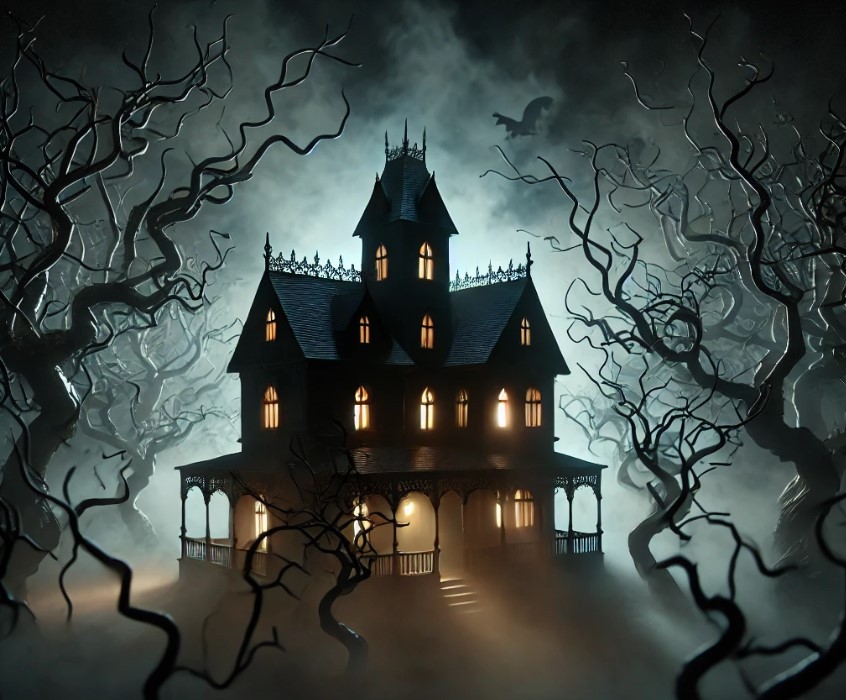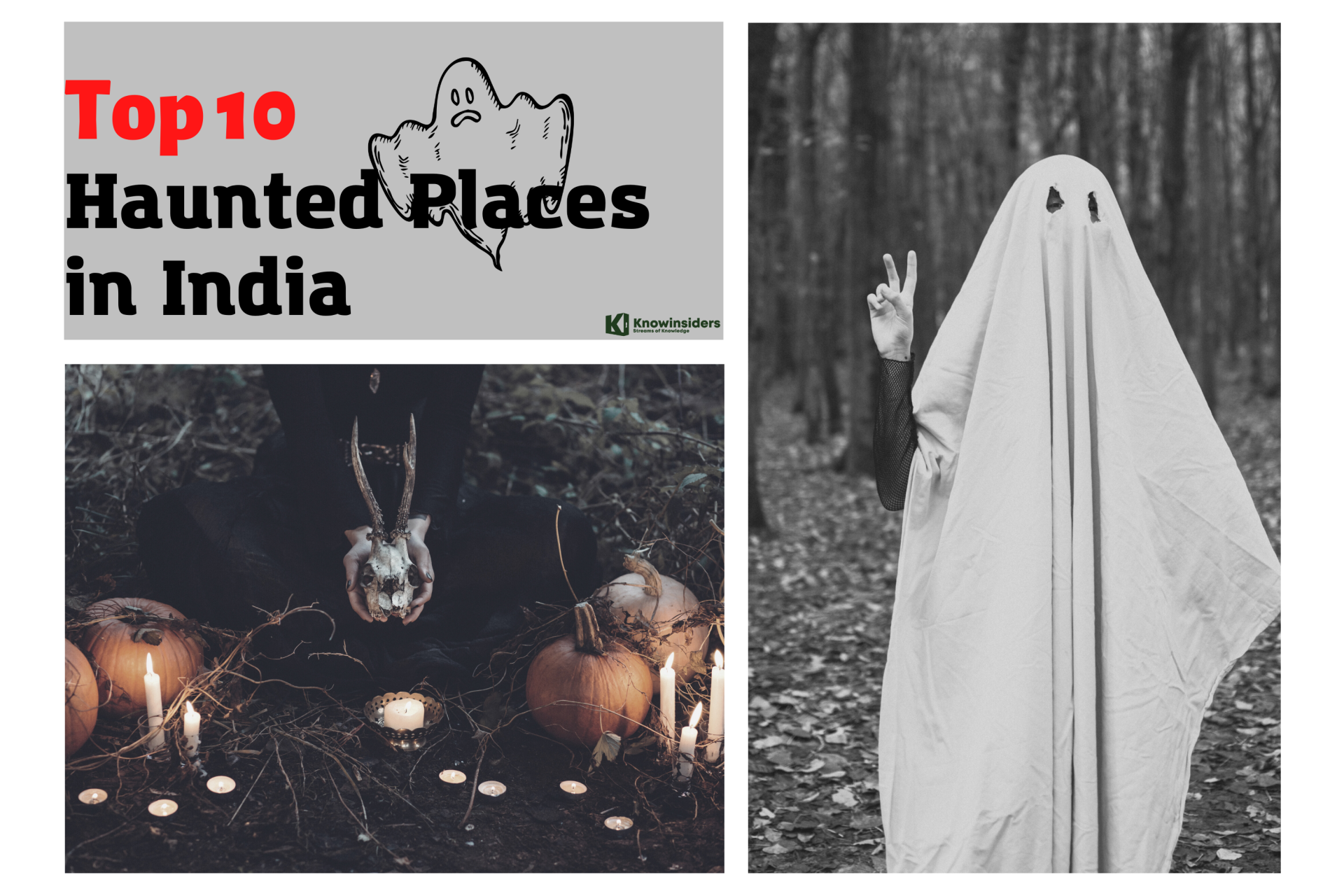Halloween: Are Ghosts Real? Ghosts Do Exist?
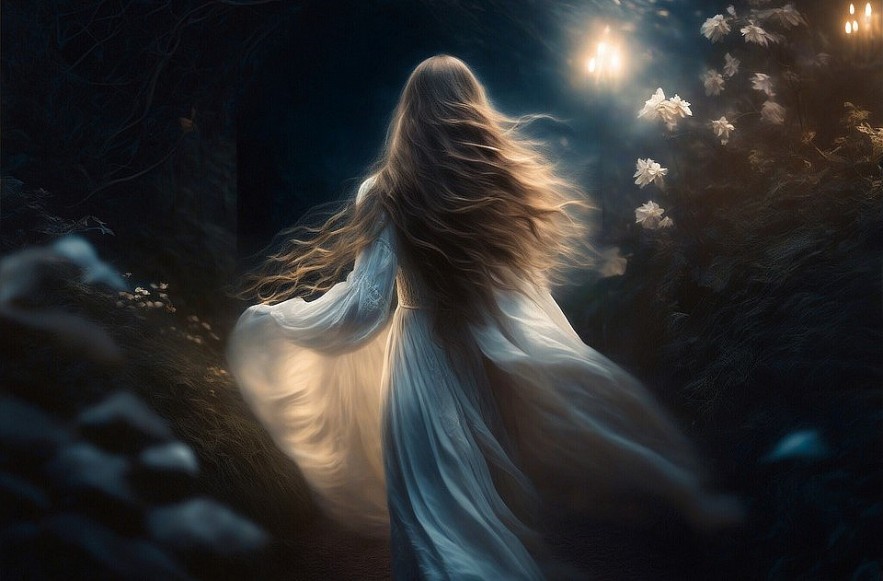 |
| Stories about ghosts appear from life, to movies, or novels. But are ghosts real? |
Who Believes in Ghost?
If you believe in the existence of ghost, you're probably not the only one.
The belief in an afterlife and the existence of a "realm" for departed spirits is central to many cultures' beliefs and practices. Actually, millions of people across the globe hold the belief that specters actually exist, making them one of the most popular paranormal phenomena.
Nearly half of American adults (46%) believe in the afterlife, according to a 2019 survey by Ipsos. Eighteen percent of those people reported having personal experiences with ghosts.
There are innumerable accounts of the afterlife, from the Bible and other sacred texts to a whole literary subgenre known as "ghost stories," all of which center on the concept that the departed continue to exist in some form or another. Among the many paranormal beliefs that surround the concept of life after death, spiritual communication, and near-death experiences is the belief in ghosts. For many, faith is a source of solace.
So, what is the devil from a scientific perspective?
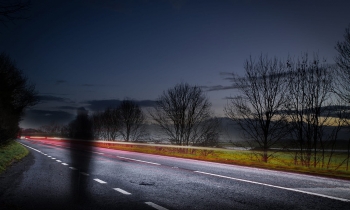 Top 10 Most Haunted Roads In The UK With The Ghost Story Top 10 Most Haunted Roads In The UK With The Ghost Story |
Ghost in History
Attempts to establish contact with the afterlife have persisted for ages. In Victorian England, for instance, after tea and social gatherings, the upper class would gather in the drawing rooms for parties. At esteemed educational institutions like Cambridge and Oxford, paranormal study groups began to form, with the most notable of these, the Society for Psychical Research, being established in 1882.
Skeptical investigators like Harry Houdini exposed several psychics who had professed their ability to communicate with the dead in the United States in the late 1800s.
The worldwide popularity of ghost hunting as a hobby has only lately begun to grow. A lot of this is because of the popular Syfy cable show "Ghost Hunters," which has aired 230 episodes but has never actually found any evidence of ghosts.
The show's central tenet—that anybody can go ghost hunting—has inspired a plethora of imitations and spin-offs. The original two stars were just average folks—plumbers, to be exact—who decided to hunt for spectral evidence. The gist of their argument is that formal education in science or investigative skills is not required. The only things you'll need are a little bit of downtime, a dimly lit area, and maybe some tools from an electronics store. If you listen closely enough, any strange sounds or lights could be apparitions.
Afterlife beliefs are stronger than ever before due to the lack of clarity surrounding the definition of spectral events.
Science Seeks Answers: Are Ghosts Real?
Strange, unexpected, and hard to explain things can happen at any time in history or even in a person's own life.
One thing that makes it hard for scientists to figure out what ghosts are is that they are said to cause a lot of strange things, like doors closing on their own, lost keys, cold spots in hallways, and the spirits of a loved one who has died.
They can be as simple as a door closing by itself, something going missing, the temperature of a place suddenly changing, or seeing the face of a dead family member.
The existence of demons is therefore always hard to prove from a scientific point of view.
Professor Stephen Hupp, a clinical psychologist at Southern Illinois University Edwardsville in the United States, says that many things are wrongly thought to be caused by evil spirits.
One of them is sleep paralysis, or sleep paralysis. It is an experience that has been proven by science. Before scientists found out about it, people thought that this event was caused by ghosts or demons.
In addition, the idea of ghosts has a lot of built-in contradictions. Do you know if ghosts are real or not? Can they move through solid things?
It looks like the idea of demons (if they exist) goes against everything we know about logic and basic physical laws. For instance, if ghosts are the souls of dead people, then why do they dress up and show up with things that aren't alive, like hats, sticks, and dresses?
Or, if ghosts can talk to people, why don't the souls of people who have been murdered find a way to report the crime, find the person who did it, or clear someone?
There are so many different theories about ghosts that they don't belong to many scientific topics. There may be demons and souls, but science doesn't say for sure.
On the other hand, many claims say that demons exist. But if they can't be found or show up in some way for us to see, then pictures, videos, sounds, etc. can't be used as proof of ghosts. The above sentence means that science cannot answer the question of ghosts.
A lot of people who have said they've seen ghosts haven't necessarily seen what most people would call a "ghost." They may have had completely different experiences, with the only thing they all had in common being that it wasn't easy to explain.
Experience from your own life is one thing, but scientific proof is something completely different. One hard thing about looking into ghosts is that there isn't a single agreed upon definition of what a ghost is. Some people think that ghosts are the souls of people who have died and got "lost" on their way to the afterlife. Others think that ghosts are telepathic beings that we project into the world from our minds.
There are many problems with the way people think about ghosts. For example, what's the deal with ghosts? It's possible for them to move through solid things without hitting them. They can also slam doors and throw things around the room. Logic and physical laws say it can only be one or the other. There have been many reports of ghost trains, cars, and carriages. If ghosts are the souls of dead people, why do they show up dressed and with inanimate (presumably lifeless) objects like hats, canes, and dresses?
If ghosts are the souls of people who died without being saved, then why are there still murders that haven't been solved? Spiritual mediums say that ghosts can talk to them and figure out who killed the mediums. for the police? There are so many questions that it's hard to believe almost any claim about a ghost.
Many creative (and possibly false) methods are used by ghost hunters to find evidence of ghosts. Psychics are often among these methods. A lot of ghost hunters think of themselves as scientists, and their high-tech scientific tools, like Geiger counters, Electromagnetic Field (EMF) detectors, ion detectors, infrared cameras, and sensitive microphones, make it look like they are scientists. But it has been shown that none of these tools can find ghosts. For hundreds of years, people thought that flames turned blue when ghosts were around. Today, not many people believe that story, but it's likely that many of the signs that modern ghost hunters look for are fake and hundreds of years old.
Some researchers say that the lack of proof for ghosts is because we don't have the technology to find or hear the spirit world. But this can't be right: Ghosts exist and show up in the real world, so they can be seen and recorded in pictures, movies, videos, and audio recordings.
If ghosts existed and could be found or recorded scientifically, we should have strong proof of them, but we don't. If ghosts exist but can't be seen or recorded by science, then the pictures, videos, sounds, and other recordings that are said to show ghosts cannot really be ghosts. With a lot of theories that don't make sense and not much science to back them up.
As for making scary pictures and sharing them on social media, it's now easier than ever thanks to new "ghost apps" for smartphones. This makes it even harder for people who study ghosts to tell the difference between fact and fiction.
| Science cannot prove that ghosts are real, but it can explain why many people see ghosts |
Why Do We Believe that Ghosts Exist?
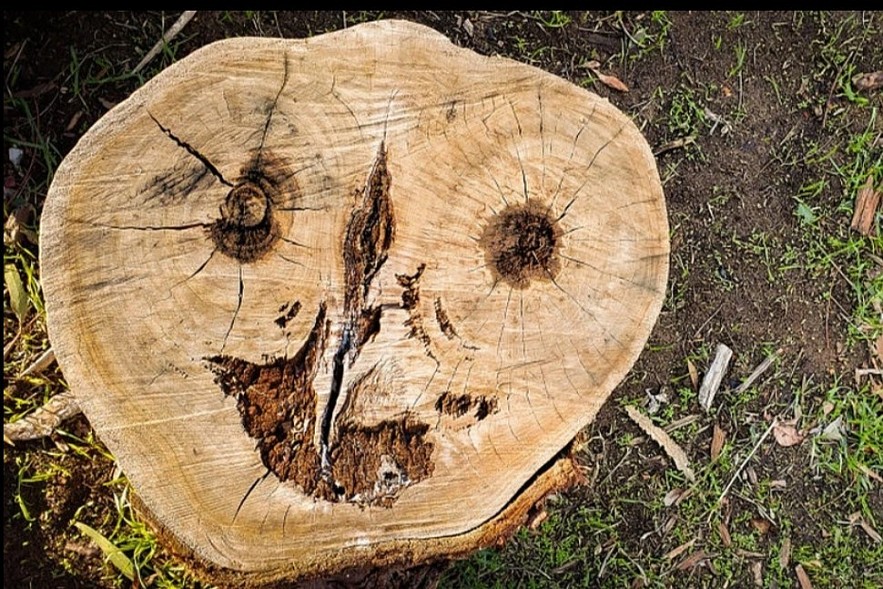 |
| There is a strange syndrome that makes us see faces, or human figures appearing in the clouds, in the bushes, or inside a dark house (Photo: Getty Images). |
According to Professor Stephen Hupp, pareidolia syndrome is a common cause of belief in ghosts. This is a syndrome in which people tend to perceive (or impose) a valid explanation on an ambiguous image, transforming it into an object, a pattern, or carrying a specific meaning.
Faces or human figures appearing in the clouds, bushes, or inside a dark house is a common example. Furthermore, belief in the spirit world can be a psychological response.
"This universe still has a lot of things we don't understand, and some people may feel comfortable filling that gap with explanations about the supernatural world," the professor said.
"Supernatural explanations are often offered with confidence, even in the absence of actual evidence, and this confidence can give a false sense of reality."
If ghosts were real and were some kind of unknown energy or entity, their existence (like all other scientific discoveries) would be discovered and discovered by scientists. Controlled experiments were used to confirm the findings.
"The last thing you want to hear about ghosts is their existence according to someone's story, but there is no scientific evidence," Professor Stephen Hupp concludes.
| Most people who believe in ghosts do so because of a personal experience, such as growing up in a home where the existence of (friendly) spirits was assumed, or they had some frightening experiences on a ghost tour or haunting local. Many people believe that evidence for ghosts can be found in a science as difficult as modern physics. Many people believe that Albert Einstein established a scientific basis for the existence of ghosts by using the First Law of Thermodynamics: What happens to our body's energy when we die if energy cannot be created or destroyed but can only change form? Could he be appearing as a ghost in some way? |
Ghosts Sprout from Faith
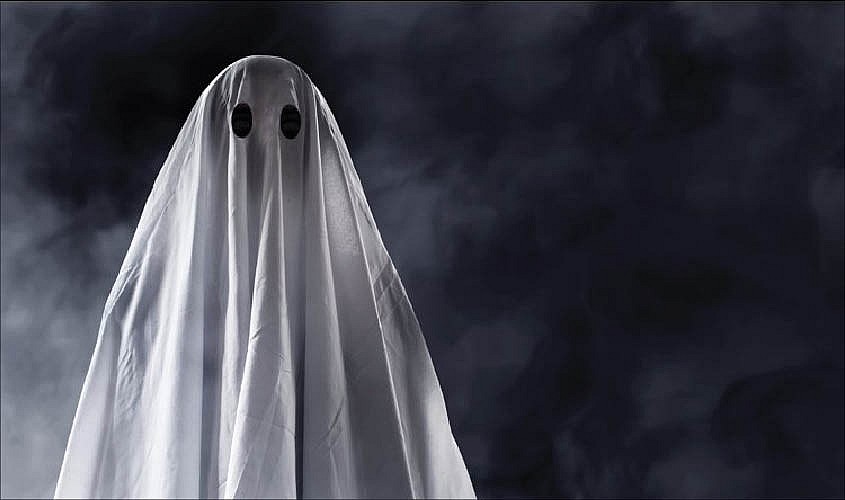 |
| Ghosts Do Exist |
It's not true that all people who believe in ghosts have seen one. Most of them, though, have seen ghost movies, read ghost stories, or heard ghost stories.
How many scary TV shows have you seen, like The Conjuring, Annabelle, The Nun, and The Ring? We've been thinking about ghosts since we were very young, even before there were blockbuster movies. For example, the scary stories your parents told you to keep you from going outside at night show this. night.
When we are not aware of it or don't have strong reasons to argue against it, every child is born believing that ghosts are real.
Once a belief is deeply rooted in the mind, it can't be changed or questioned. That is what you will believe until you are old enough to doubt and question its truth.
YouGov, a market research company, says that almost half of people in the United States believe in ghosts. 13% of these people think vampires are real and drink blood. This thought takes over our minds when we hear a floorboard creak or feel a sudden chill.
In 1990, researchers in psychology at the University of Illinois did a test. Two groups of volunteers were asked to help them give a tour of the long-abandoned Lincoln Square Theater.
Scientists put in a tour guide for the first group who told them that the theater was haunted. The second group had a neutral tour guide who didn't talk about ghosts.
The results showed that visitors in the first group were more likely to say they were scared and having strange dreams.
"We tend to be this way because we are very good at making connections," says Chris French, who runs the Abnormal Psychology Research Unit at Goldsmiths.
As humans, we have learned to use all of our senses to learn about the world around us. We learn to be very alert so that we can spot and avoid dangers like predators.
When our senses are overworked, they pull out things we don't see or know aren't real and make us believe they are. All of a sudden, ghosts started to appear out of nowhere in random sounds or fuzzy pictures.
French says that there is a scientific name for this event. It's called "pareidolia," and it happens when people think they have recorded ghosts talking. But it's just noise in the background in a quiet place.
A lot of psychics and ghost hunters in the West scam people by playing on the "pareidolia" mentality. They do this on purpose to make the person pay attention to a certain phrase. Wait for their brain to pick out a similar sound among all the other noise.
So it is possible to persuade them of the existence of ghosts.
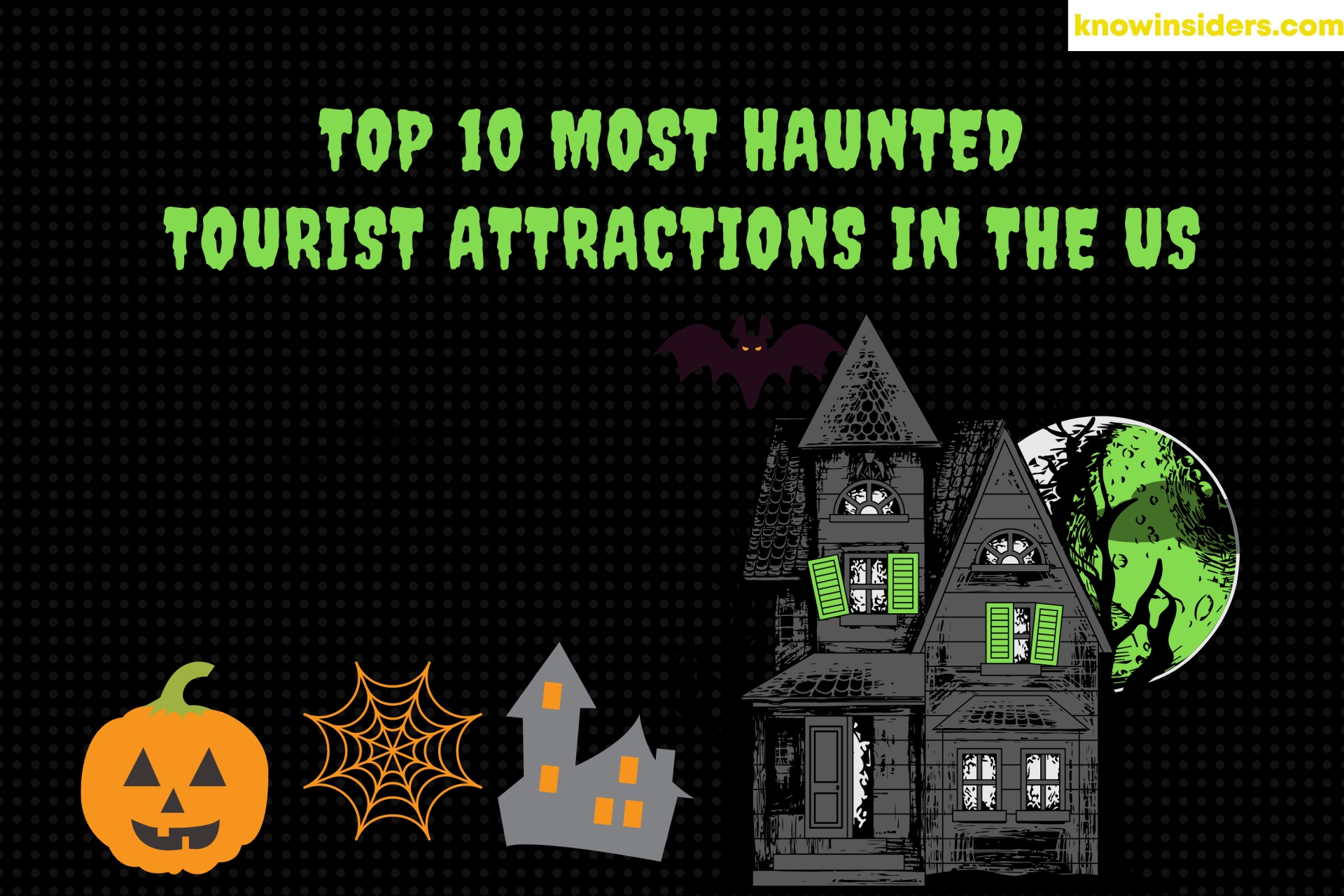 Top 10 Most Haunted Tourist Attractions In The U.S With The Ghost Story Top 10 Most Haunted Tourist Attractions In The U.S With The Ghost Story |
You Need Ghosts for Companionship
Psychological studies show that some people who are going through a traumatic event, like the pain of losing a loved one, can "call" on their spirits to talk to them and make them feel better.
Ex-spouses often say they see or feel their deceased partner, just like amputees often say they feel their "phantom limb," the feeling that their missing limb is still there.
A study published in 1971 in the British Medical Journal found that almost half of widows in Wales and England had seen the ghosts of their dead husbands. These meetings are so vivid that they're almost like real life.
Psychologists call it "after-death communication" and think it's one of the most common paranormal experiences. It can happen to people who believe in God or not.
A study that came out in 2011 in the journal Death Studies looked at hundreds of cases of living people talking to dead people. According to the authors, real people often imagine these ghosts to help them deal with upsetting events.
However, ghosts aren't always friendly. Death isn't the only one. Some studies show that kids who are picked on or put in dangerous situations are more likely to dream about magical creatures. This pattern can also be seen in adults who had a traumatic event as a child.
Your Brain Is Not Healthy
Based on the above reasons, we can say that most ghost sightings are caused by a short-term mental illness. In some cases, though, people see ghosts more often and hear the voices of spirits who are chasing them all the time.
Research shows that this could be an early sign of a mental illness like schizophrenia. Some evidence suggests that people who already have brain disorders are more likely to have intense and negative paranormal experiences.
Brain changes that happen for a short time can make ghosts show up in people who are not mentally ill. People who use psychoactive drugs, like LSD and magic mushrooms, often say they have spiritual experiences.
Spores or mold in abandoned homes can sometimes expose people to these mind-altering chemicals without meaning to. This is the reason why these places are often called "haunted."
You may experience strange ghostly things when you wake up from a different state called sleep paralysis and your body won't move.
People who suffer from sleep paralysis, for example, often feel like they are swept into another space and see themselves floating, drifting, or even separate from their body. They often feel like a ghost is sitting on their chest.
Scientists are still trying to figure out what makes this happen, but some think it happens when the brain goes back and forth between being awake and asleep.
If you want to avoid sleepwalking or hurting yourself, you can't move during REM sleep because your motor nervous system is turned off. You won't be able to move if you wake up and your brain doesn't turn on your motor nervous system.
You're freaking out about this, maybe because you think you're dead. Then, brain signals can randomly overlap, which can lead to strange ghostly things happening.
Final Thoughts
If ghosts were real and were some unknown form of energy or entity, then their existence (like all other scientific discoveries) would be discovered and verified by scientists through controlled experiments - not by weekend ghost hunters wandering around dark abandoned houses at night with cameras and flashlights.
In conclusion, the evidence of specters is just as weak now as it was a century ago, even though there is an abundance of blurry photographs, audio recordings, and video. The inability of ghost hunters to find definitive proof could be due to one of two factors. The first holds that specters do not exist and that reports of their presence are based on psychological phenomena, hallucinations, or other forms of delusion. Another theory is that, although the existence of ghosts is not in dispute, the scientific methods and critical thinking abilities needed to find proof of their existence are lacking among ghost hunters.
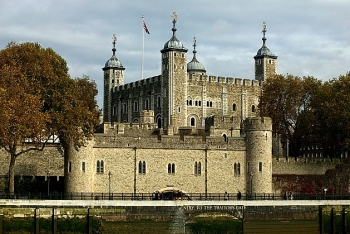 Top 10 Most Haunted and Ghostly Places in Europe Top 10 Most Haunted and Ghostly Places in Europe Everybody loves a good scare every now and then. You can now incorporate this into your trip by going to some of the scariest places ... |
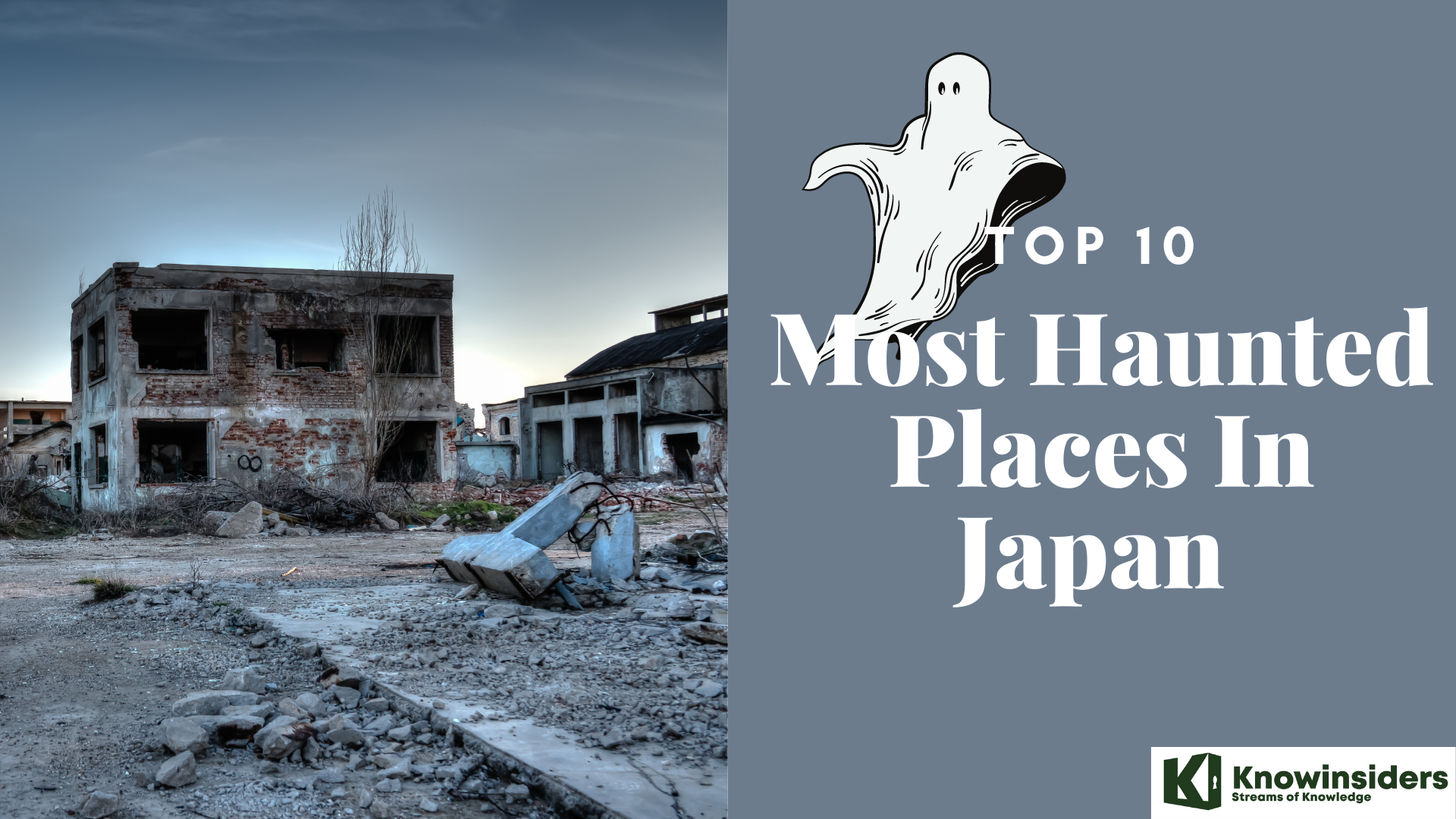 Top 10 Most Haunted & Ghostly Destinations in Japan Top 10 Most Haunted & Ghostly Destinations in Japan Japan is the ideal destination if you're seeking for the most amazing ghost stories to share. Check out these horrifying and eerie locations across this ... |
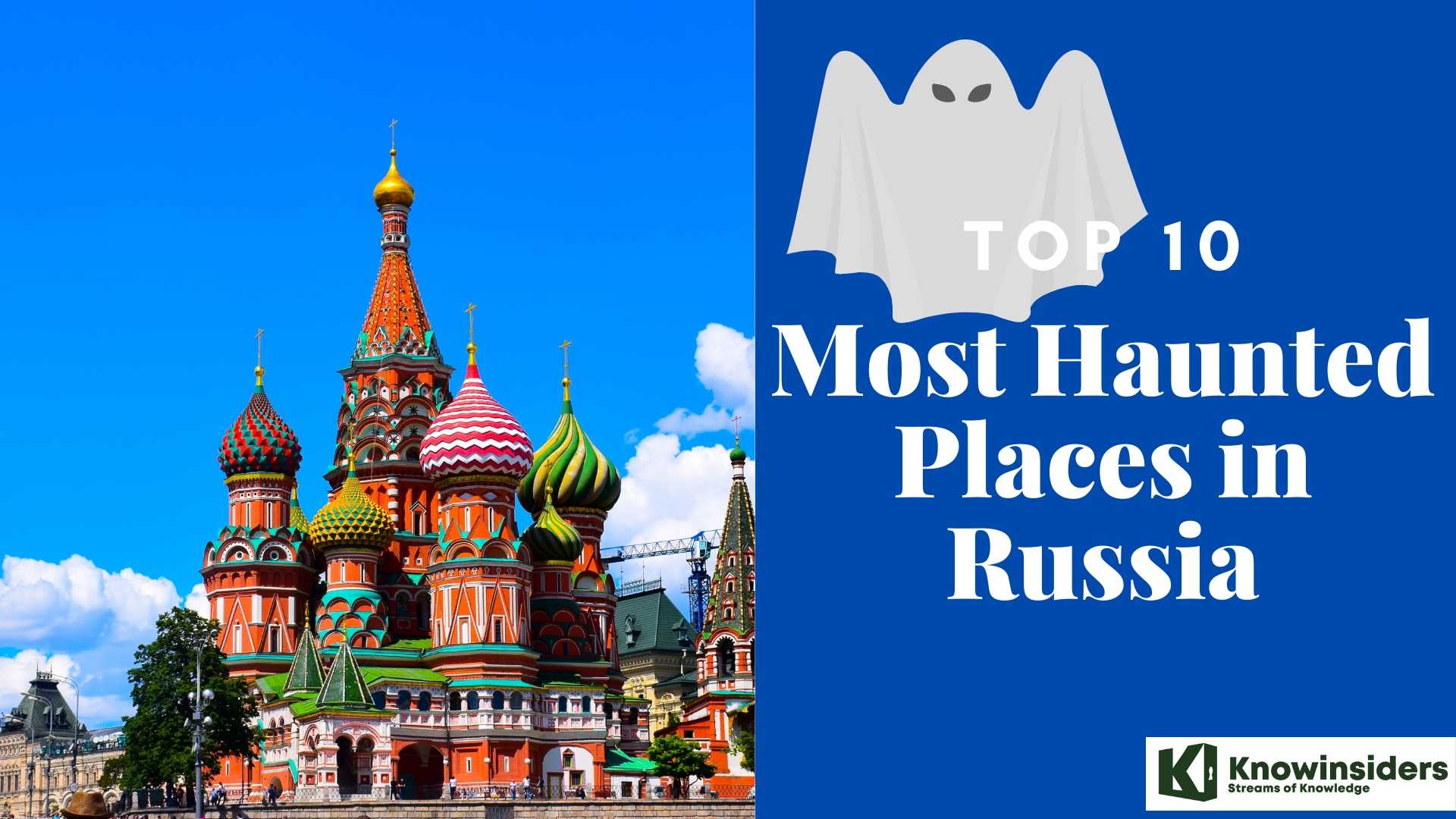 Top 10 Most Haunted & Ghostly Destinations in Russia Top 10 Most Haunted & Ghostly Destinations in Russia To know more about top 10 most haunted places in Russia, keep reading the article below. |

